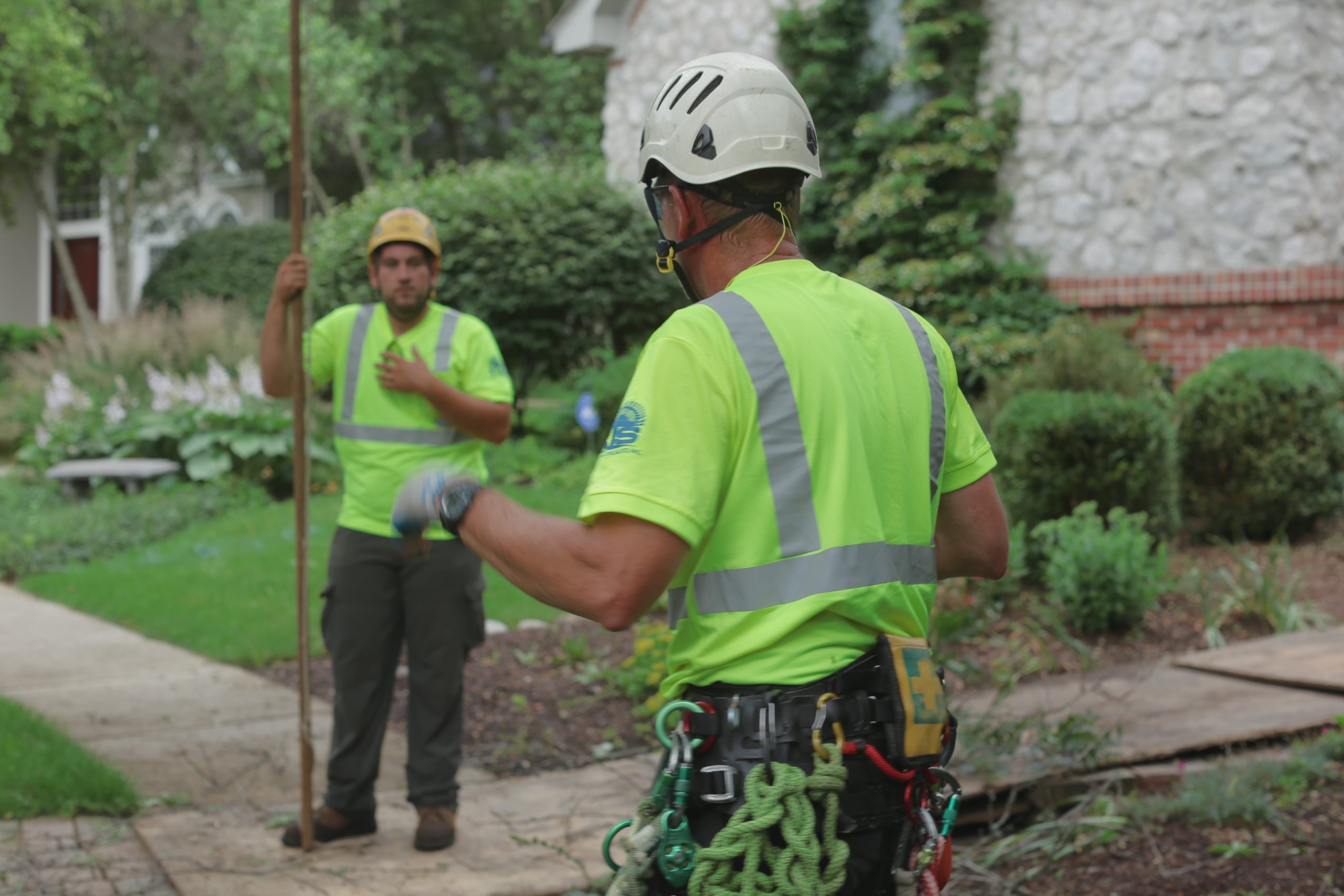Every phase of a new employee’s onboarding process is important, especially in the tree care industry. From the first day they show up to work, through their first month, to the completion of their first year, it’s important to create a welcoming atmosphere and provide the guidance necessary to set them up for success. Mentoring is important in companies large and small, and while it takes a little more time upfront, studies have shown it often leads to increased employee retention and improved workforce productivity.
Kramer Tree Specialists, Inc., located in West Chicago, Illinois, is just one of the many tree care companies that touts the benefits of a strong mentoring structure early on in the hiring process. Todd Kramer, the Training and Performance Manager at Kramer Tree, said although he can’t speak for the entire industry, the implementation of a solid new employee onboarding process has benefited his company tenfold.
Building the fundamentals
A new employee’s first week at Kramer Tree involves a lot of learning, meet and greets and company history. Todd says the first thing they do is meet a manager from each department for a briefing on what each area of the company does.
“We want them to learn not only what we do, but why we do it,” Todd said. “Then once they’ve completed meetings with each manager, they will start training in the department they’ve been hired for. It’s not an intense training at first, but it’s important for them to know the fundamentals of what they’re going to be doing before they’re out in the field.”
Todd explained that each department has a different set of fundamentals. For example, if a new hire is to work in the tree production department, they would train in jobsite hazard communication and equipment safety.
“We’re definitely getting better results by having an onboarding process,” Todd said. “We’ve received a lot of positive feedback. Employees have said they liked hearing about the company’s vision and mission. A lot of companies will have things like that in a book on a shelf somewhere, but hearing those goals firsthand shows that we’re really trying to implement our vision.”
Now that Kramer Tree’s onboarding process has been in effect for about five years, Todd believes employee culture has also improved because they understand “the why” of every situation.
“Why are we making mulch? Why do we fix these trucks? Plus, they individually get to meet the manager of every department, so we give them a very strong understanding and involvement of each department and what they can potentially be doing at the company,” Todd said.
Training, mentoring and more
Kramer Tree also sees benefits with cross-training employees and quarterly training employees. In fact, Todd says it’s crucial.
“People enjoy the variety of work and when one department is slow or one is busy we have guys that can step up,” Todd said. “In any given quarter, there are three or four topics that we train on and we meet in small groups of four or five guys at the most. We’ve had incredible success with smaller group training — it’s just more productive.”
Todd prefers to train everyone quickly on all three to four topics in a span of eight to ten days and then work on building those skills throughout the quarter together in the field.
“There’s constant coaching,” Todd said. “Just because there was a training day, doesn’t mean you’ll get it all right away. It’s a process and it takes a while — for some it might take years.”
Kramer Tree also sends employees to outside training sessions when they can to help reaffirm the skills that they teach.
“Outside training is important,” Todd said. “Hearing the same thing from the same person all the time — you can lose the buy in. Sometimes hearing it from someone else, even though it’s pretty much the same message provides further affirmation.”
Advice to new managers
When it comes to offering his sage wisdom to new managers in the industry, Todd has a few pieces of advice to impart.
“When it comes to new employees, they’re always ready and willing to learn but you have to remember there are generational differences,” Todd said. “As a leader, you have to understand people. The younger generation is different and they learn differently. Sometimes they need more direct instructions but they take direction very well. They just need that encouragement of independency.”
Once you understand who you’re working with a little better, Todd said he finds communication and training can go a lot further.
“Take the time to get to know your team,” Todd said. “Ask about their family, their kids. I’ve always made it a rule for myself as a manager to not socialize with coworkers outside of work to preserve that professional boundary, but once you know your staff it’s much easier to lead them.”
For more tips and trends in starting your own tree care business, view more articles on the Tree care, rental and landscape blog.
Vermeer, the Vermeer logo and Equipped to Do More are trademarks of Vermeer Manufacturing Company in the U.S. and/or other countries. © 2017 Vermeer Corporation. All Rights Reserved.
